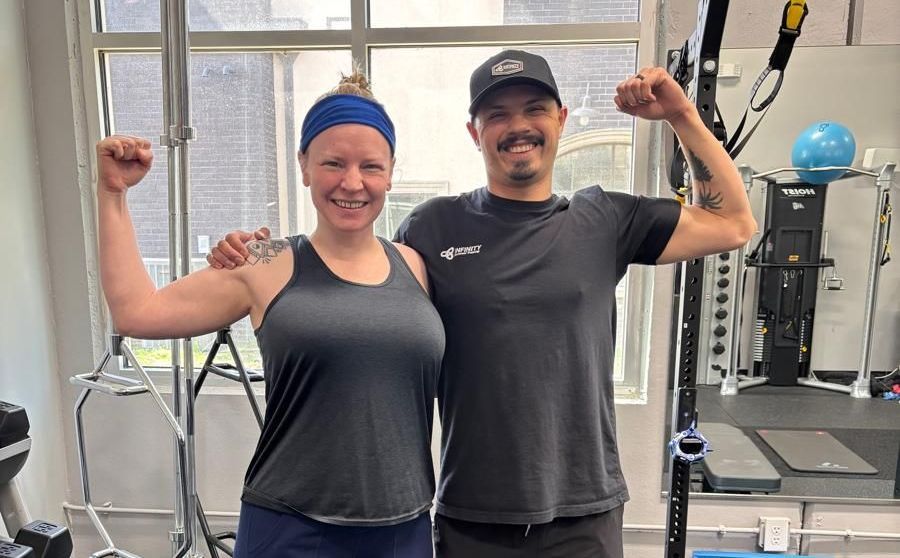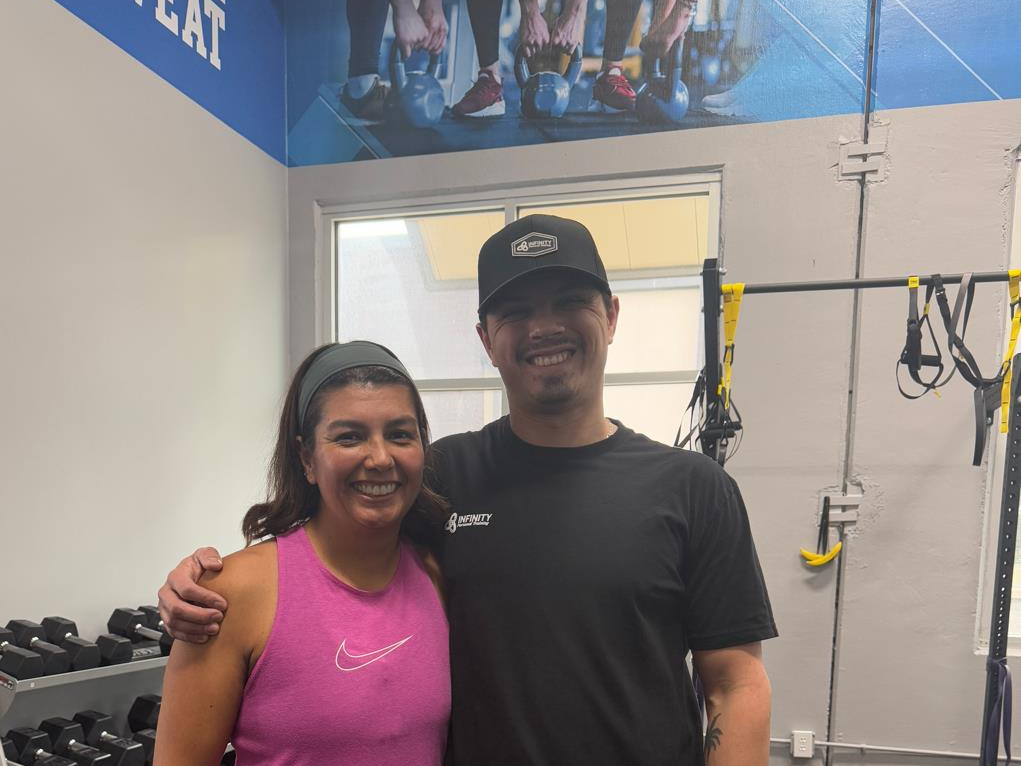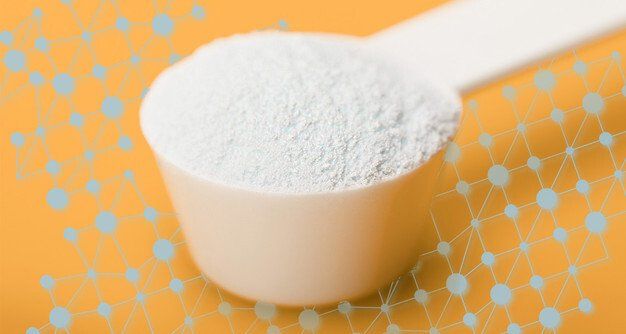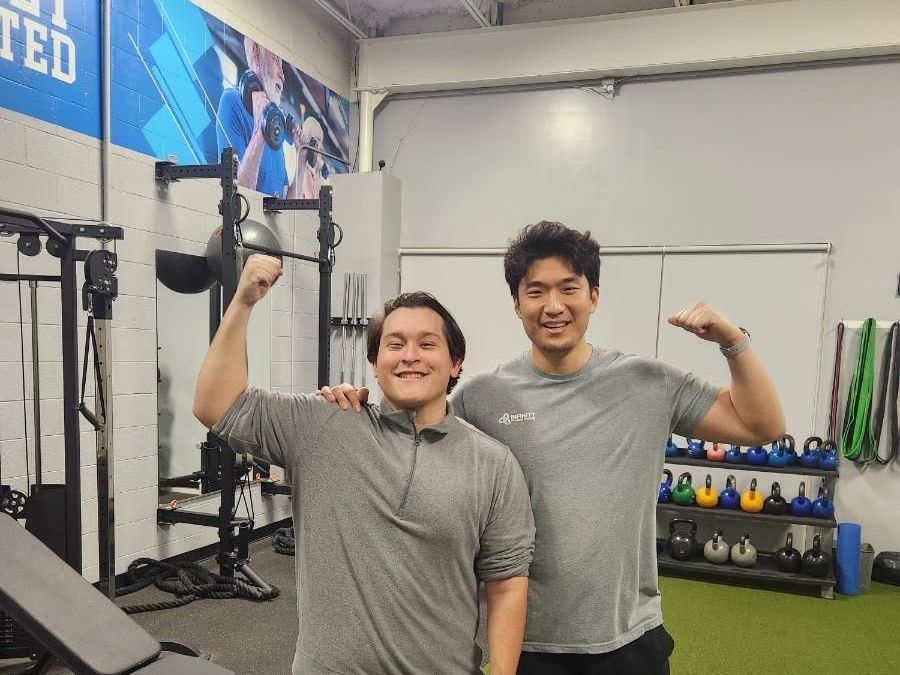January 10, 2019
Today's Nutrition Education Topic = All About Collagen: The Good, The Bad and The Over Hyped (link to article below)
https://weareladder.com/blogs/nmp/collagen-protein
If you’re looking for collagen to boost your workout or lead to faster fat loss, don’t believe the hype. Collagen will work just as well as any other protein -- but you’ll pay a lot more for it (without any added benefit) and need to take more because collagen has a weaker amino acid profile. But , if you’re hoping for healthier skin, joint health benefits, and potentially some help fighting inflammation, then the right collagen product could be exactly what you need.
Until recently, a collagen supplement was something that you’d put on your body, not in it. For decades, people have used collagen topically in anti-aging creams. But recently there’s been a spike in collagen everything.
While a powdered (or pill version) of collagen might be the product you’re looking for, you’ll want to scan the label before you make your purchase.
WHAT IS COLLAGEN?
Collagen is a fibrous protein that helps make up the connective tissues in your body. That means collagen is in your skin, hair, joints, bones, muscles, veins, and organs, explains Jonathan Valdez, R.D.N., owner of Genki Nutrition and a spokesperson for the New York State Academy of Nutrition and Dietetics. More than 30 percent of your body’s structural protein is collagen.
All collagen is made up of amino acids, which are the building blocks of protein. Your body uses these amino acids to repair its tissues (think: muscles, bones, and joints). Basically, collagen is the glue that holds those tissues together and help them withstand stretch, Phipps says.
So, it makes sense that products are trying to find ways to improve collagen, especially when you consider that collagen decreases when you get older and doesn’t produce as quickly as it used to. And the process starts surprisingly early, with some reports suggesting that your natural collagen levels start decreasing by 1 percent per year around the time you hit 30.
Before you buy a product and expect magical results, here’s a quick breakdown of what we know drinking collagen will do for your body.
COLLAGEN AND YOUR SKIN
Most evidence on oral collagen supplementation shows that it can improve skin complexion and reduce so-called "imperfections."
For example, a recent review published in the Journal of Cosmetic Dermatology found that supplementing with oral collagen increased skin hydration after eight weeks, which suggests that taking collagen can help you beat dry, cracked winter skin.
Another study published in the Journal of Medicinal Food found that supplementing with collagen was effective at reducing the appearance of cellulite in women.
COLLAGEN AND JOINT HEALTH
While there are very few studies performed -- which means we need more time (and research) to know with certainty if collagen will help most people, type II collagen (aka collagen peptides) has shown more upside than other more common supplements, such as glucosamine and chondroitin.
According to Examine.com, a leader in supplement research, “The collagen in joint cartilage is 80–90% type-II collagen. Current research suggests that undenatured type-II collagen (UC-II) may reduce swelling, joint pain, and stiffness in cases of moderate-to-severe osteoarthritis and both juvenile and adult-onset rheumatoid arthritis.”
Undenatured type-II collagen is not the same thing as hydrolyzed collagen. As the saying goes, the devil is in the details. Hydrolyzed collagen is broken down differently in your stomach. The International Journal of Clinical Pharmacological Research found that the digestive enzymes and acids in your stomach are not best friends with hydrolyzed collagen, which is what you’ll see in most popular collagen peptide powders. The result: that type of collagen won’t survive the environment in your stomach.
But type-II collagen has a different chemical structure, meaning it can slip through the back door of the digestive process, maintain its chemical properties, and still offer you benefits.
A study in the Journal of International Society of Sports Nutrition found that people with joint pain or mobility who took collagen for four months significantly improved joint function. Other research published in Current Medical Research and Opinion suggests that collagen supplements may lessen joint pain among college athletes. And more research published in the International Journal of Clinical Pharmacology Research found that collagen may decrease joint stiffness and pain in women.
You can give the products a try, but -- in general -- if you’re ever feeling pain or discomfort, it’s best to consult with a doctor of physical therapist first.
COLLAGEN AND BONE HEALTH :
While collagen may be useful for your joints, claims that collagen is beneficial for bone density are unsupported.
For example, in a study published in the journal Maturitas, researchers found that collagen supplements did not improve bone health in postmenopausal women with osteopenia (a precursor to osteoporosis).
Another study published in the Journal of Agricultural And Food Chemistry did find that collagen increased bone density and had a beneficial impact on osteoporosis -- in rats. Until there is evidence that collagen can improve bone density in humans, it’s best to set your expectations low.
COLLAGEN AND YOUR WORKOUT
There’s a reason why scientists believe strongly in testing for reliability and validity: sometimes one study can be extremely misleading.
One study published in the Journal of the American Dietetic Association explains many of the claims about collagen and workout performance. That study had many limitations. Most notably, it only involved nine healthy women over the age of 70, all of whom were given collagen supplements for 15 days.
While the results aren’t the issue, the study design is. Most of those subjects would experience benefits from consuming any protein. We know that older women typically under-consume protein, and drinking protein has been found to help preserve lean muscle mass.
Outside of that one study, you won’t find much about collagen improving your workout, helping with muscle gain or fat loss. You need to take more collagen than other forms of protein because it’s an incomplete protein (it doesn’t have the amino acid tryptophan). And since most collagen products have smaller servings sizes of protein (about 10 grams compared to 20 grams in the usual whey product), there’s a more economical -- and more effective -- protein solution.
THE COLLAGEN BUYER’S GUIDE
To ensure that any supplements you take -- collagen or otherwise -- contain what they actually say they do (and nothing else), your best bet is to choose a tub that has been third-party tested by a company such as NSF International. You should see this mark right on the label.
However, people with sensitive stomachs may experience some discomfort like heartburn or nausea. So if you find it’s hard on your GI system, try a brand with fewer ingredients, take smaller servings, or consider stopping the supplements altogether.
COLLAGEN WITHOUT THE POWDER?
Like most products, supplements offer a convenient concentrated dose of the ingredients you want. But, that doesn’t mean there aren’t other ways to get collagen in your diet. Here are ways that you can support your body the old-fashioned way.
Regularly eating vitamin C-rich foods such as citrus fruits, dark leafy greens, strawberries, and blueberries. No, Vitamin C is not collagen but it is critical to natural collagen production.
Eating foods high in vitamin A, such as sweet potatoes, carrots, and spinach can also help. Much like vitamin C, vitamin A helps your body maintain its collagen levels.
Making your own bone broth or stock. Bone broths and homemade soups are jam-packed with collagen and you don’t need to go out and buy a bone broth mix from a store. You can make your own by simply putting bones (could be from chicken, beef, pork or a mix) into a large pot with water and veggies like carrots and celery. Add a couple of tablespoons of apple cider vinegar, and let boil for several hours. The real trick: the longer you let it boil, the more collagen you’ll receive from the broth (that’s what makes bone broth different from regular stock). If you want to max out the collagen you pull out, cook the bones on low for at least 24 hours. You can make bone broth quicker (say, a minimum of 6 hours of slow cooking), but less cook time means less collagen. And be sure to keep the heat on low to prevent the breakdown of the collagen, which makes it less “usable” by your body.
You might also like

Cat Came in with a big goal, she set her bar high and did not let anything stop her from making progress. Since the start what truly stood out about Cat is her consistency and honesty. She’s lost 18 lbs/8.4% of Body Fat mass in just 4 months while increasing muscle mass by 3lbs and is only 3lbs away from her long term goal! In the workouts she is always pushing herself and regardless of if it is a good or bad day, you will find her trying to go up in weight and going all out in the workout finishers.

Within 6 consistent months at IPT’s Semi Private Program, Diana is down 17.9 lbs and 8.8% body fat! The greatest thing about Diana is she always steps up to the challenge in front of her. From the beginning, she set a big goal and didn’t let anything hold her back from getting there. She quickly implements feedback to progress forward. Her consistency in and outside the gym has been incredible



